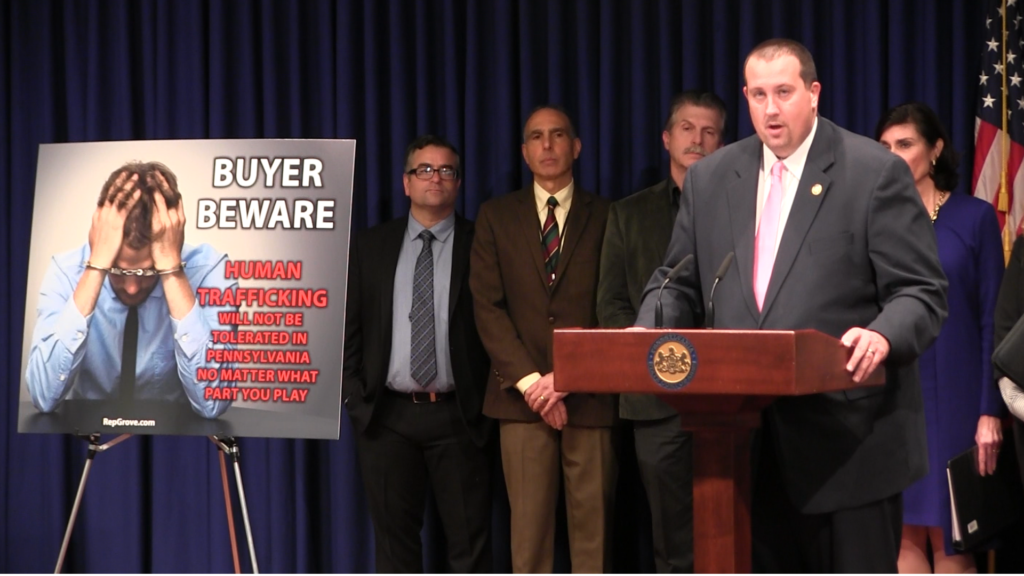On Friday, February 22, Tom Shaheen, Vice President for Policy for Pennsylvania Family Institute, was part of a roundtable discussion this morning (Friday, February 22nd) to discuss the topic of human trafficking, centered on Rep. Seth Grove’s Buyer Beware Act (House Bill 12). Here is his testimony:
Good morning. Thank you to Rep. Wendi Thomas for hosting this forum. Thank you to Rep. Seth Grove for the invitation, and our thanks to both of you for your leadership in introducing this important human rights legislation. I applaud the many advocates present this morning for the work that they do to assist victims of this modern day form of slavery.
I am here representing Pennsylvania Family Institute & Council in support of the Buyer Beware Act – House Bill 12 and Senate Bill 60 – a necessary next step toward the ultimate goal of ending human trafficking here in Pennsylvania, following the successful passage of Safe Harbor, now Act 130 of 2018.
Pennsylvania Family Institute & Council is a statewide non-profit organization focused on protecting the human life at all stages, promoting stronger marriage and families, and preserving religious freedom in Pennsylvania through education, legislation and the courts.
We have a duty to do whatever we can to protect the women and children who are victims of human trafficking. We have a responsibility to the victims to do whatever we can to help them in at least two major ways:
The First Way is by actively caring for the individual victims involved. To that end, we have interacted with and support the work of various local, faith-based ministries that reach out to workers that may be trapped in the sex industry with love, care and shelter when needed.
The Second Way is by improving our laws.
Commercial sex – paid sex – is what makes trafficking profitable. Disrupting this market for commercial sex could prevent victimization. And we can do this by going after the demand, the willing buyers, if you will. And that’s why this Buyer Beware Act is so important.
The Pennsylvania Family Institute is also concerned about the environments, the venues, that attract and facilitate commercial sex and have been shown to have a strong connection to trafficking.
Adult-oriented businesses must be held responsible for exposing their employees to danger. The FBI found: “Strip clubs and massage parlors are havens for prostitutes who are trafficked into the commercial sex industry. This includes pornography, strip clubs and nefarious massage parlors in the United States.”
According to the Polaris Project, which operates the National Human Trafficking Hotline:
Victims of sex trafficking are frequently recruited to work in strip clubs. Women, including minors, may be recruited to work in these clubs as hostesses, servers or dancers, but then are required to provide commercial sex to customers. Strip clubs are designed to provide the space and environment in which buyers may purchase commercial sex. Victims of sex trafficking in strip clubs are frequently moved between multiple club locations.
And all of these venues and activities rely on paying customers. And that’s where legislation like House Bill 12 comes in.
With a goal of reducing the demand for this activity – House Bill 12 takes important steps to protect women, including young teenagers, and their families back home. Passage of House Bill 12 would provide many needed changes to Pennsylvania criminal law in the fight against this modern-day slavery. Thank you.






